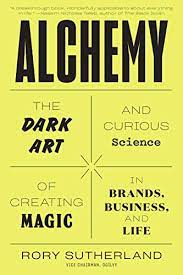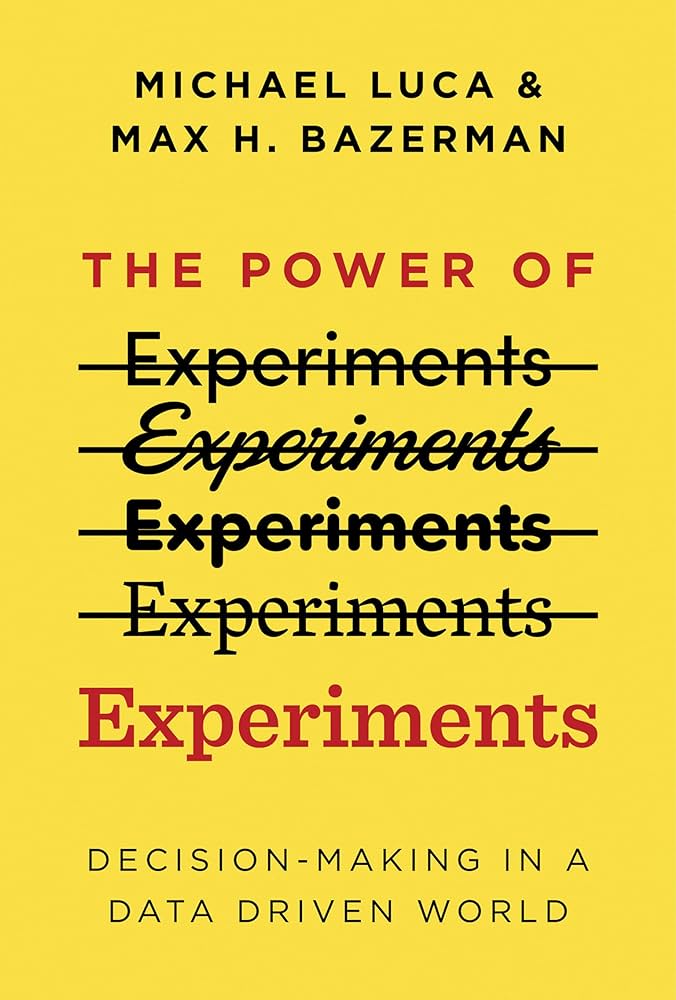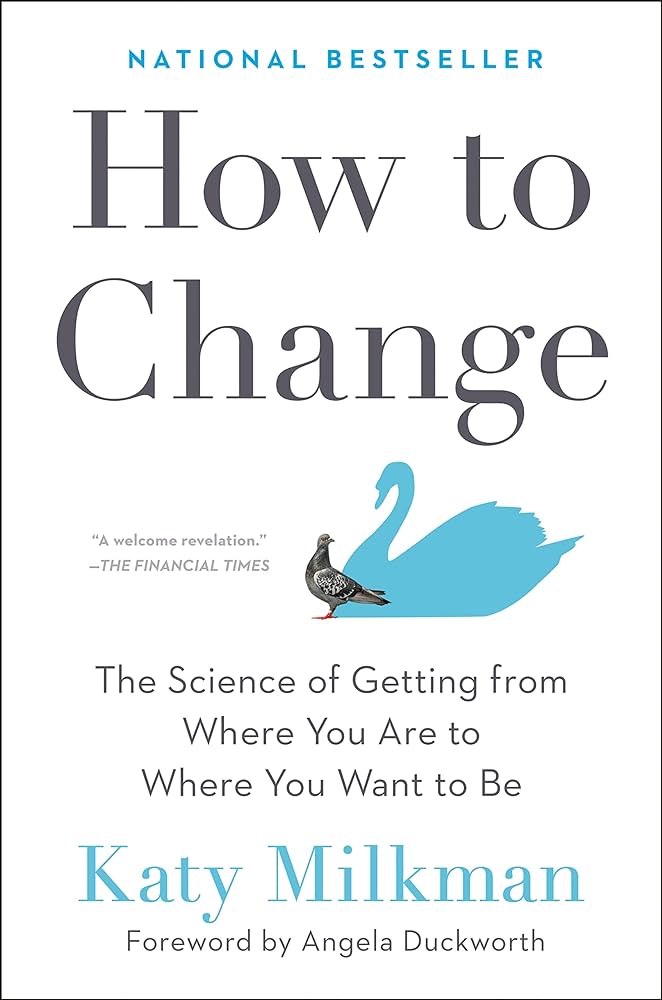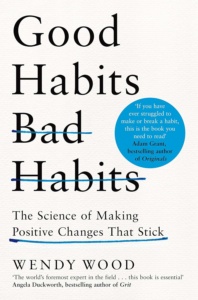Looking for your latest fix of brilliant behavioral economics content?
If you’ve already worked your way through the 10 Most Influential Behavioral Economics Books, here are five more to keep you learning, growing, and experimenting:
- Alchemy: The Dark Art and Curious Science of Creating Magic in Brands, Business, and Life, by Rory Sutherland

Sutherland’s TED talks have been viewed close to 7M times, and it’s no wonder given his unique blend of hilarious storytelling alongside cutting-edge science.
While including case studies from organizations like Microsoft and AmEx, Sutherland also unabashedly argues that better branding can be used for social goals like getting more women into STEM, encouraging people to pay taxes, and improving a variety of public health outcomes.
- The Power of Experiments: Decision-Making in a Data Driven World, by Michael Luca & Max Bazerman

If you’ve Googled something, picked a movie on Netflix, or logged into Facebook, you may have been unwittingly part of a randomized controlled trial. Major tech companies now regularly use these kinds of experiments to test the efficacy of online experiences, and to good effect: eBay, for example, figured out how to cut $50M out of its yearly ad budget by doing this.
Luca and Bazerman draw on the best practices of such experiments from companies like Uber, Alibaba, and Airbnb to illuminate the power of experiments not only at for-profit companies, but implications for governments to boost social goals, like increasing voting or reducing school absenteeism. They convincingly encourage us all to join ‘the experimental revolution.’
- A Journey For Happiness: The Man Who Cycled to Bhutan, by Christopher Boyce

What drives a leading happiness researcher to cycle from Scotland to Bhutan, and what can his journey teach us about how to be happier in our own lives? Christopher Boyce offers a captivating answer.
This travel memoir intertwines adventure with deep psychological insights, as Boyce pedals through diverse landscapes and cultures, exploring the essence of well-being. It’s an easy, but thought-provoking read that brings together the personal with cutting-edge academic research on ‘what makes us happy’.

Ever wondered why breaking bad habits or adopting new ones can be so challenging? Katy Milkman explores this intriguing question in How to Change, combining engrossing stories with rigorous research to offer practical strategies for overcoming behavioral hurdles. Milkman, an expert in behavioral science, guides readers through understanding personal tendencies and environmental factors that shape our actions. An essential read for personal and professional development, it’s a compelling bridge between desire and decisive action.

Practically everyone wants better habits, yet the way we generally go about changing our habits is frequently through willpower. Unfortunately, as Wood compellingly proves, conscious awareness is not even close to powerful enough to help us change our habits, especially when we spend a whopping 43 percent of our days doing things without thinking about them.
Fortunately, harnessing the power of your unconscious is not only possible, but plausible. Wood’s combination of case studies, neuroscience research, and descriptions of experiments conducted in her own lab come together to illuminate a surprisingly hopeful and exciting future for anyone who wants to make positive and lasting change in their lives.
Want to learn more about behavioral design? Join our Bootcamp today.
